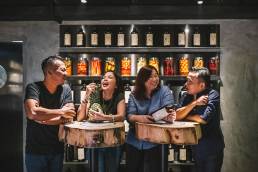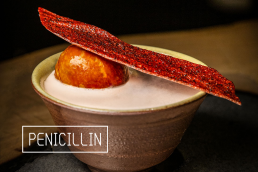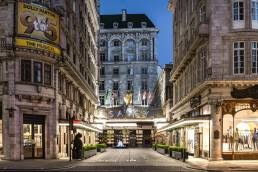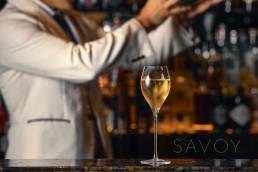Sustainability: the avoidance of the depletion of natural resources in order to maintain an ecological balance.
A simple definition for a practice that has been known in the past to be lost in translation in many industries throughout the world. Historically the hospitality industry has had (and in some places) continues to have a dramatic effect on the environment through its consistently large consumption of energy, water, goods and single use packaging.
When we think of hospitality most of the time our minds won’t gravitate to what goes on behind the scenes, we’ll instead think of the decadent plates of food or some of our favourite drinks that are waiting for us at the end of a long work day. But for those who participate in sustainability, or work behind the scenes will know of the volumes of packaging that goes into the bin each night or the potential gallons of water and energy that is wasted simply each shift. Thankfully not everyone has turned a blind eye and there are many venues across the world that are putting in the strides to change the way they operate and utilise sustainability to produce a high quality and guilt free result.
For True Believers, the goal to building a sustainable future in the industry is one shared by many others. Inspired by the farm-to-table movement that has been taking the culinary world by storm, Hong Kong’s most recent sustainable bar Penicillin champions a closed-loop model of production, (in a nutshell, a process that reuses material waste created during production). Their menu consists of entirely locally sourced or up-cycled food and drink. Ingredients that find innovation in the flavours of Hong Kong while constantly looking for ways to minimise their carbon footprint. Their overall mission is to become Hong Kong’s first “scrap-less”bar, essentially a bar that produces the minimal possible waste by the end of each night, they do this by researching all the ways that they can up-cycle or reuse common waste or kitchen by-products. Simultaneously they self-brew, ferment and reuse ingredients to be used in cocktails (such as locally sourced botanicals to minimise carbon emissions caused by lengthy transport).
In the progressive 21st Century, sustainability is widely regarded as the key to a successful business, particularly in the hospitality industry as climate change insidiously creeps it’s way into our daily routines, using sustainable methods is seen as not only responsible, but a necessity. In addition, “going green” as it can be more affectionately known, is something more and more customers are increasingly willing to reward in businesses and employees take more pride in representing their respective companies.
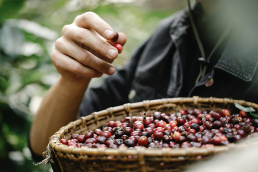
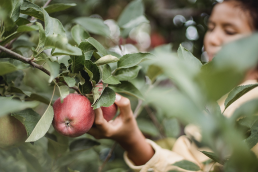
The farm-to-table movement is one that stretches back to the 1960s and 70s* when Americans started to become dissatisfied with processed food tasting too bland, during this time climate change was beginning to become increasingly convincing to scientists and even discussed quietly in the inner circles of the oil industry. With the state of global warming progressively getting worse especially today, we can see the importance of these social movements changing the way that each industry operates. The farm-to-table movement has since morphed throughout the years and bled into bars, taking operating bars to the next level. Penicillin is just one of the prime examples of this social movement raising the bar for hospitality venues, customers are increasingly more health conscious, and it is a known fact that farm products are not only fresher, but higher in quality and nutrients. Pair this with the fact that locally sourced farm products usually travel less distance and less fossil fuel is burned in the process and you have a fool proof foundation for a venue that produces incredible food and drinks.
Taking this approach to the new heights is the innovative company ecoSPIRITS. They provide the aforementioned closed-loop distribution system that nearly eliminates packaging waste in the spirits supply chain. They reduce the overall carbon footprint related to transportation. All this is done in a way that is cost effective for their respective partners. Based in London the luxurious Savoy hotel has collaborated with ecoSPIRITS as part of their sustainability initiative to enhance the overall experience of their hotel whilst never compromising their guests’ experiences. Guests can enjoy the fruits of their collaboration with ecoSPIRITS through a seasonally changing, revolutionary cocktail initiative. First to launch was Co-Naissance, made with locally sourced ingredients Portobello Gin, liqueurs made from locally foraged ingredients and re-carbonated Champagne, not only this but the for each cocktail sold a tree was planted in a reforestation program in Borneo. Currently on the menu is The Apiary, a light, bright spin on the martini, but using carbon negative Avallen, a French apple brandy. The list goes on with initiatives such as energy efficient light bulbs being used, Chefs working with sustainable food suppliers for locally sourced and seasonal produce, as well as engaging in programs such as ‘Plant for the Planet’ which have added a further 1,900 trees, and all of this is incredibly just the tip of the iceberg for The Savoy.
In a world where the state of the environment is continuously changing, it’s understandable to sometimes not know where to begin if you’re considering the sustainable route, however supporting sustainable businesses is a simple place to start. Thanks to companies like ecoSPIRITS, many venues around the world are able to to gain access to the resources they need to go green and to continue serving an even better quality of product to their loyal customers and hopefully, motivate them to bring those initiatives into their homes.
If you’d like to know more about sustainability in the industry, feel free to visit us at https://truthinspirits.com/
Or check out ecoSPIRITS at https://ecospirits.global/#about
Find Penicillin Bar at https://penicillinbar.com/
Find The Savoy Hotel at https://www.thesavoylondon.com/

